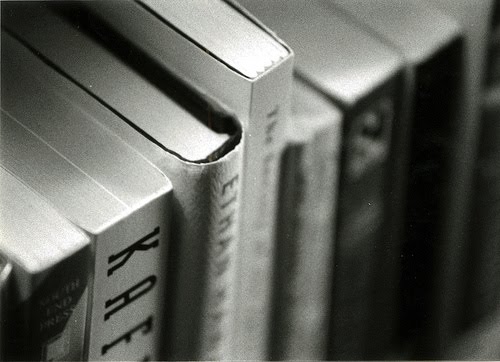In Patricia Grace's poem "Sky Love Earth," the speaker creates a connection between a mother's love for her child and nature. The poem is written in a sing-song, childish manner, bringing to mind a lullaby. However, the concluding stanza questions the created analogy, and turns the nonchalant tone into a disdainful cry.
First, the way in which the lines are written, grammatically incorrect and with few words, brings to mind the way a mother sings to her child. "Sky love earth/ shine light/ fall rai-ai-ain:" these sound like versus of a lullaby. Therefore, the image of a mother is first created, and then clarified with the line "turn breast". Yet, the depiction of nature with words such as "sky," "earth," and "rai-ai-ain" becomes juxtaposed with the portrayal of a mother feeding her baby. Therefore, it can be conclude that an analogy is being made between the caring nature of a mother and her baby and nature itself. While "rain" can be interpreted as tears, or sadness, it could also be interpreted as the pain which comes with bearing a child. The pain which every mother feels, a way of sacrificing, for her coming child.
The "light" which "shine[s]" in the first stanza could be the hopes, dreams, and wishes of the new mother. She has made plans for her child and for herself. Yet in the second stanza, the "child/ steal[s the] light" and "turn[s] away rai-ai-ain." While the occupational thoughts which posses each mother take away her initial dreams and hopes for the future, the sole presence of her child "turn[s] away" sadness. Therefore, Grace supports the idea of a sacrificial yet benefitting mother, in the way which they throw themselves into the care of their baby.
Yet, a "sword" is "thrust" "into" the "ea-ea-earth." The placement of this line directly in the middle of the poem not only signifies the middle of a woman, where she carries her child, but also the process in which a child becomes cut off from his mother, and must go out into the world alone. Also, the extent of a mother's love is so great, that she would gladly kill herself in order to save her child. Therefore the allusion to death with the help of the "sword" supports the pain which love can afflict.
The final stanza concludes the poem, with a disdainful image: a mother bleeding, trying to save her child, to no avail. The word "bleed" not necessarily is used literally. "Bleed" could signify sorrow, or unimaginable and intangible pain. The fact that the "child" at the end of the poem is "already dead" not only shocks the reader, who began the poem thinking nonchallantly, but also creates an anticlimax, slightyl ironic since the mother possesed so many dreams for the future of her child.
The encorporation of nature into the poem juxtaposes a mother's love and the role of nature. The line "sky love earth" could mean that whoever lives in the heavens loves those beings on earth. The "rai-ai-ain" which "fall[s]" nurtures and hydrates all those who live on earth, likewise, a mother's milk is the sole nurishment which a child receives, and depends on. The beings on earth "steal" from nature: the production of harmful gases, the possesion of land, the destroying of forests, animals... and likewise, a child takes time from his mother, hopes, dreams...
This poem asks indirectly why a mother loves her child so much to "bleed" for him, if he will just be "dead" anyway.
not well enough developed. try to get a more tangible idea before writing. organize a bit better. use more literary elements, and terms.

No comments:
Post a Comment